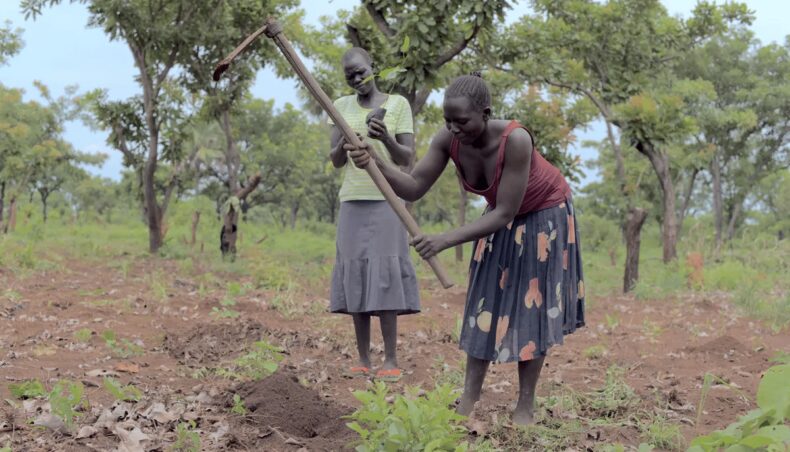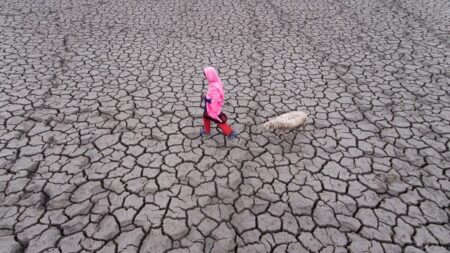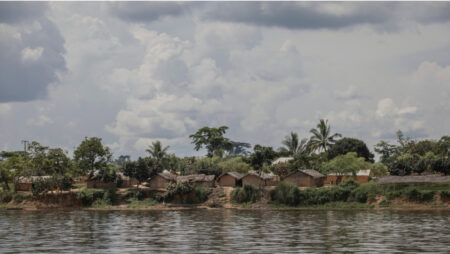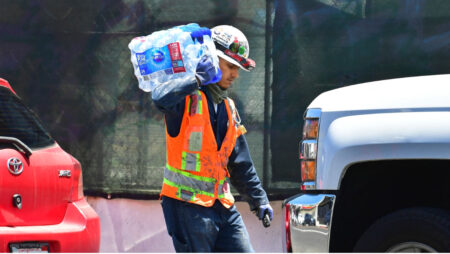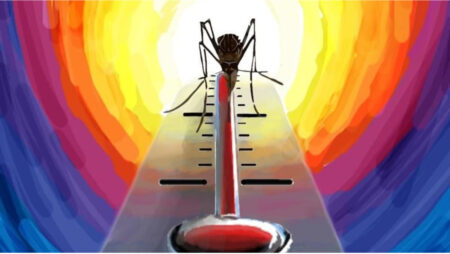In the refugees settlement in the Palorinya, Northern Uganda reforestation efforts are taken to fight against deforestation and save the ecosystem.

Refugee settlement in Northern Uganda
More than 2 million refugees fled from South Sudan due to the decades long Civil war crisis and they have settled in neighbouring countries such as Uganda, Kenya, Ethiopia and Sudan.
The settled refugees prepare food and build homes, collect timber and firewood from the forest regions contributing to deforestation. This resulted in the imbalance in the natural ecosystem.
In order to tackle this situation, the Palorinyan local official tied up with Wild Forest and Fauna (WildFF) a nonprofit organisation to assist the refugees to plant trees and help in increasing tree coverage.
They planted fast growing fruit and timber trees which inturn increased the forest tree cover and also became a source of food and income to the refugees.
Deforestation and Climate Change
The forest cover is declining day by day due to legal and illegal cutting of trees making this region one of the most vulnerable ecosystems.
Due to the decline in the availability of firewood in the nearby places, the refugees are forced to cover long distances to collect firewood. As a result, the children are dropping out from schools as they are sent to long distances in the forest to collect firewood.
Jason Scullion, a professor at McDaniel College in Maryland and cofounder of WildFF said that the climate change in northern Uganda is making the dry season more and more dry and longer.
The over exploitation of trees leads to desertification of the land, by destroying the flora and fauna in the region. It also raises issues like soil erosion, and reduced rainfall.
Reforestation measures
Tree seedlings are planted in the region as a joint effort by the locals officials and WildFF to provide not only food and firefood to the settled people in the region but also a source of income to them.
From 2018 to 2021, nearly 5 lakh plant saplings of fruit trees like papaya, moringa, jackfruit,etc and fast growing timber trees are planted. Among them only 55% of saplings survived. This is due to the flood, intense sunlight, eaten by goats and lack of rainfall.
To make it a success, the WildFF changed their tree planting technique. They have given more training to the people to care for the plants and also planted the seedlings a bit earlier to the rainy season.
Within a year, the seedlings survival rate has increased to a whopping 76% in 2019.

The Moyo district and WildFF helped the settlement people to build fuel efficient stoves which halved the requirement of firewood, ensuring them to not travel long distances in collecting firewood. Thus, reducing the school dropout rate.
The 5,00,000 seedlings that were planted between 2018 to 2021 only sustained a total 3.4% loss of the trees.
“To reverse the forest loss and to improve the livelihood of the Palorinya settlement refugees, the plantations need to be planted” said Prof. Scullion.







